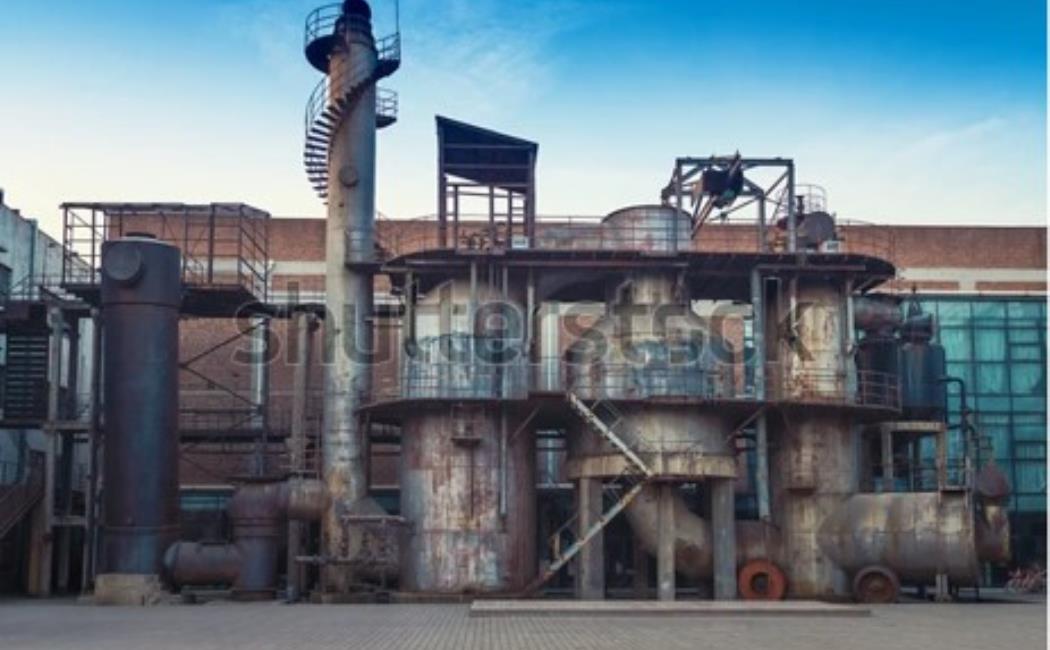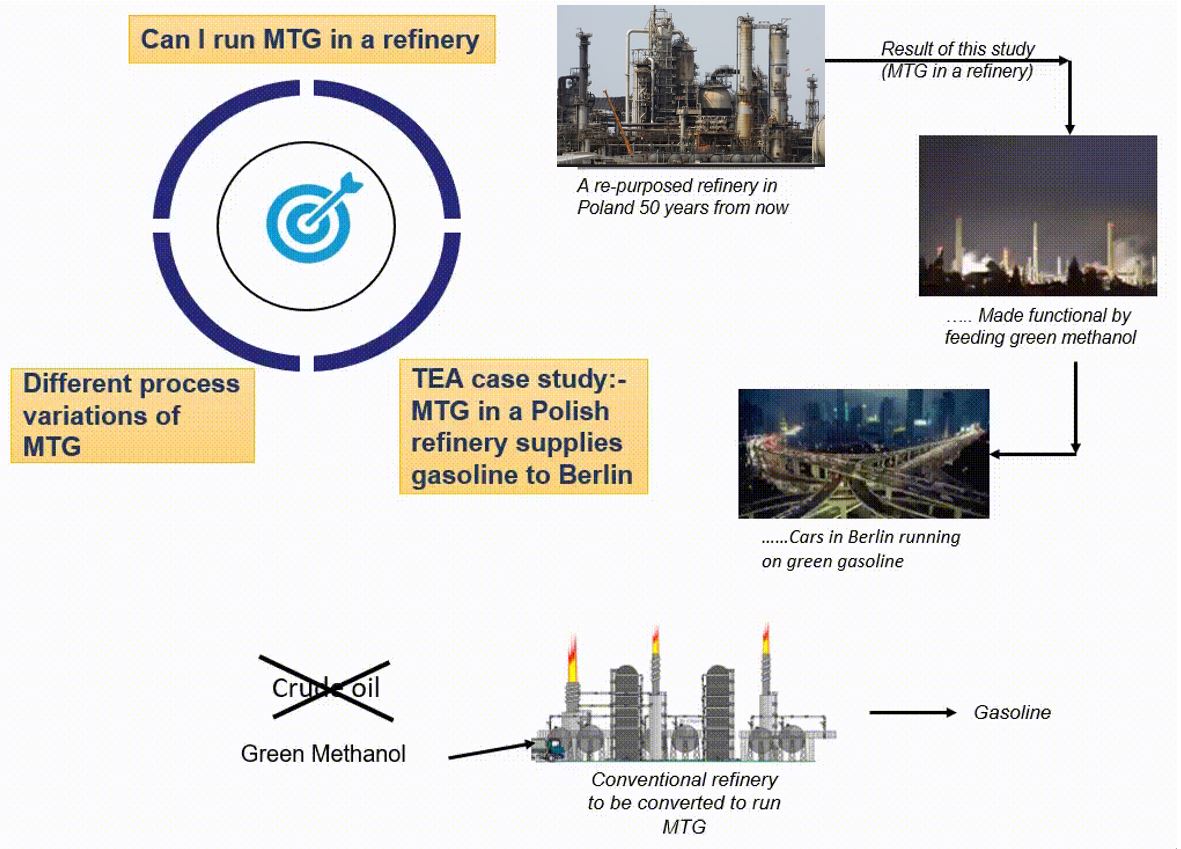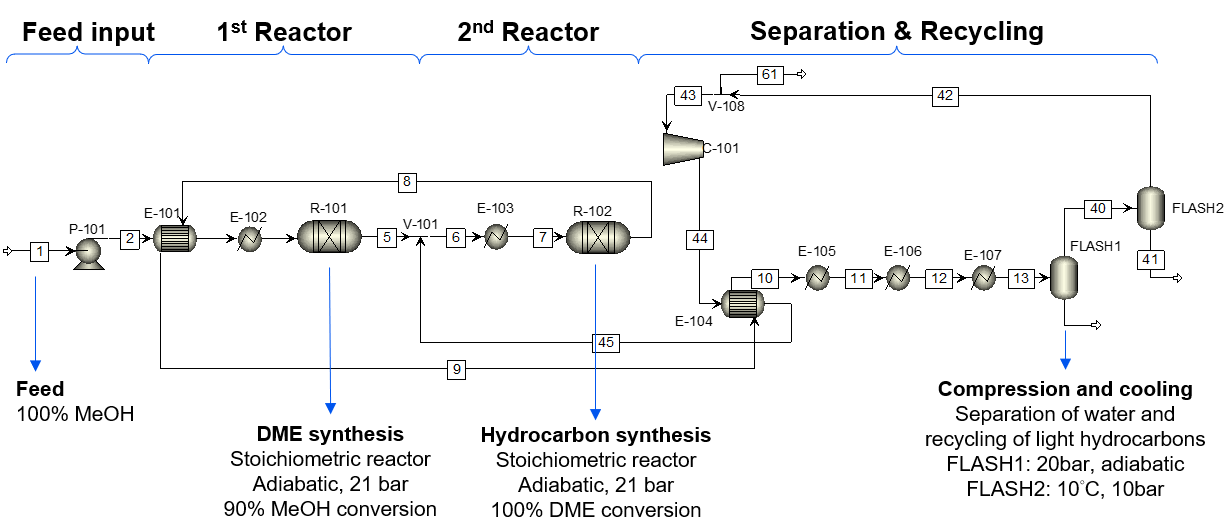
Ms. Carolina Arias Gallego, Dr. Muralikrishna Khandavilli, Prof. S. Mani Sarathy
Objective
The diversification of the hydrocarbon industry has led to the research of new feedstocks to replace crude oil. Following this idea, a very promising and renewable alternative feedstock is green methanol, which can be converted into gasoline using repurposed refinery equipment. A techno-economic feasibility of this activity centered in Europe would be desirable to meet the upcoming emission norms requiring the population to switch to battery electric vehicles otherwise. The below image shows the objectives of this FLEET project.

Methodology
The MTG process comes with a specific set of requirements such as temperature, pressure, catalyst loading and material of construction. Intending to accommodate this process in a conventional refinery using the existing equipment, a match has to be made on all these parameters. Next, a simulation needs to be constructed for the conventional refinery unit with methanol fed to it as well. This would act as proof of the technical concept. The economic feasibility study would follow next.
Simulations entail using software tools like Aspen Plus, Aspen PIMS, and HYSYS. A surrogate-based MTG kinetic model would be developed and validated with existing experimental data reported in the literature. This would then be fed to the MTG process simulation model to analyse the effect of the reaction mechanism on downstream features. The below images show the mechanistic scheme and sample simulation interface.
Methodology
The MTG process comes with a specific set of requirements such as temperature, pressure, catalyst loading and material of construction. Intending to accommodate this process in a conventional refinery using the existing equipment, a match has to be made on all these parameters. Next, a simulation needs to be constructed for the conventional refinery unit with methanol fed to it as well. This would act as proof of the technical concept. The economic feasibility study would follow next.
Simulations entail using software tools like Aspen Plus, Aspen PIMS, and HYSYS. A surrogate-based MTG kinetic model would be developed and validated with existing experimental data reported in the literature. This would then be fed to the MTG process simulation model to analyse the effect of the reaction mechanism on downstream features. The below images show the mechanistic scheme and sample simulation interface.


Expected outcome
The expected outcome of this study would be a proof of concept and economic feasibility study of incorporating the MTG process in and using conventional refinery equipment. Even though this would be evaluated in the European context and the applicability would be general and worldwide. In addition to this, a patent application draft is in progress for a novel "Non-catalytic MTG process".